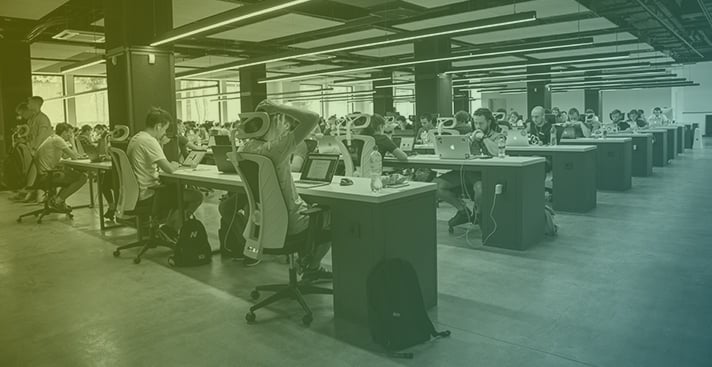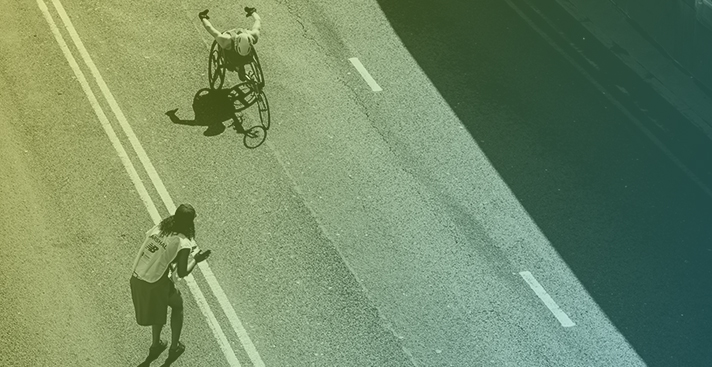It has been made crystal clear by the PM and the government, that the get back to work message sits clearly on the shoulders of those of you in the organisation making the productivity and safety decisions that will inevitably come back to bite you fairly quickly if you don’t get things correct, right from the off.
It’s an uncomfortable reality for us all, that we need to face down the COVID virus and begin to return our economy and society to a situation where cash is flowing through our bank accounts, but at the same time recognising that the COVID danger is far from past. Boris’s statements over the weekend past are designed to buoy us into what may end up being a false sense of security and reality. Localised ‘hot spots’ are already arising and are being linked closely to working conditions and people mixing in a less than the appropriate socially distant manner in buildings. Hence my concern and warning to you that perhaps bringing staff back into your buildings and premises, more than likely based on the premise that staff work better in a steel and glass structure that is branded up to be your offices and place of work, maybe more dangerous than you think.
In manufacturing where workspace maybe not an issue, social distancing and COVID security is less of a situation to manage. More than likely it is a ‘policing issue’, reminding staff to stick to the rules and procedures that you have agreed and worked hard to put in place. However, within the tertiary and quaternary sectors of our economy, for those of us who work in the service and financial sectors, where mingling in open-plan offices with communal facilities, this is and remains a huge issue and one which will require a different way of thinking.
 I suppose the first issue to decide is whether or not bringing staff back into an office environment is necessary. What purpose does it serve, other than to demonstrate that you firmly believe they have not been as productive as they should or could have been whilst sat around the kitchen table, juggling childcare/homeschooling etc.
I suppose the first issue to decide is whether or not bringing staff back into an office environment is necessary. What purpose does it serve, other than to demonstrate that you firmly believe they have not been as productive as they should or could have been whilst sat around the kitchen table, juggling childcare/homeschooling etc.
The whole nationwide lockdown process has been for many a life-changing experience. For some in an extremely sad way indeed, but for others, we have proven that what we thought of as perhaps a long term aspiration of a better work-life balance, more time with family, for interests and hobbies long-shelved away, actually does work and in very many cases works extremely well.
Longitudinal studies will arise out of the dramatic and immediate changes to our working conditions that will demonstrate that WFH does not destroy productivity, it improves it. How can a kitchen table be better than an office? I have started a list below, which I am sure is not exhaustive.
● No commute - endless hours behind a wheel watching the clock - an average saving of two hours a day for some, that’s ten hours a week, over a working day lost
● Lower costs for both the organisation and individual - These are real tangible benefits to both parties even before we factor in the broader opportunity costs as well as environmental etc
● Lower levels of stress
● An end to the constant drudge of F2F meetings often just because you are in the same building, from which limited outcomes are gleaned - meeting online provides a much more structured framework in which to operate, leading to improved decision making based on factual information
● Less downtime/distraction time talking to colleagues about the weekend past and the future one planned
● Increased opportunities for being creative problem solvers as the solutions are not in the same building
● Improved accountability and responsibility. There is no one you can sneakily ‘pass the monkey’ to or them to you
● Being able to work at times to suit everyone, but most importantly you
● No need for the extremely damaging ‘presenteeism’ that causes so many health issues
Of course, there will be times when we are required to work out of an office, but this should in the future be about blended working, mixing home and the work environment to suit both parties. This may be caused by the fact that an office can no longer safely accommodate the footfall that it did pre-COVID. Future outbreaks may destroy all the best-laid plans anyway, as local responses to spikes in the virus R number require immediate responses by all.
Whatever the future looks like, it will not be like the past, and neither should it be, otherwise, no one has taken any learning and development away from the experience, regardless of whether you have been personally affected by the virus.
Whilst on the subject of trying to forge a future out of the remaining elements of post lockdown, I can highly recommend that you listen to the ongoing ‘Rethink’ podcast on BBC Sounds. They are a set of short pieces from a huge variety of contributors ranging from Andy Murray to The Dalai Lama regarding what our future may emerge as.
At this point though I do feel I need to issue a cautionary word to all the decision-makers in your organisation about this fallacy of it’s now ok to be physically in work. The ‘Science’ does not yet support this. The virus has not gone away and yes you are responsible and accountable for the health, safety and welfare of your staff in a work-based setting.
The single important point of the Health and Safety at Work Act is that it places very clear and firm rights and responsibilities on both the employer and the employee to maintain a healthy and safe place in which to work. COVID security measures are just the latest situation we all have to manage under this act. Get it wrong and people will be ill, with a worst-case outcome of death. If that death can then be directly traced back to a work environment they were required to be in then you will certainly need to have all your ‘ducks in a row’ to be able to prove that you took all ‘reasonable and appropriate’ measures to ensure the health, safety and wellbeing of that individual. Compensation will be sought, fines will be issued, corporate manslaughter now does exist in the UK.
I urge you to take great care over this issue and only bring staff back into your environment if and when necessary, and then only when you have completed all the necessary risk assessments and put in place procedures that if followed by all, will at Prima Facia be seen to be both reasonable and appropriate. You have both a legal and moral imperative to support the welfare of your staff. Half baked, ill-conceived and poorly delivered measures simply will not cut it in this case.
I wish you well in your assessments and decision making, but finally, if what has worked well for the past four months isn't broken, why change? Use this as the opportunity to deliver lasting change and organisational improvement.








